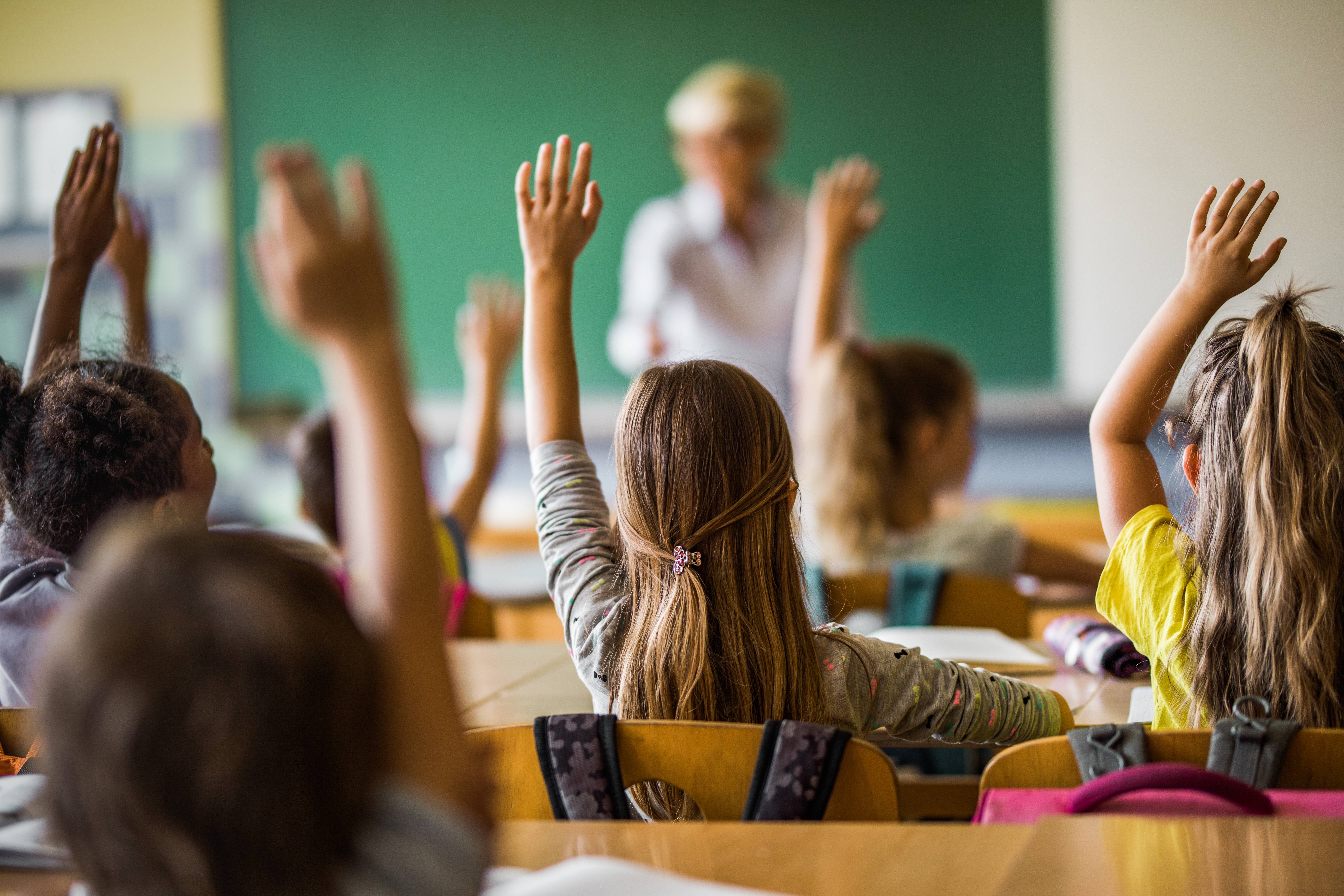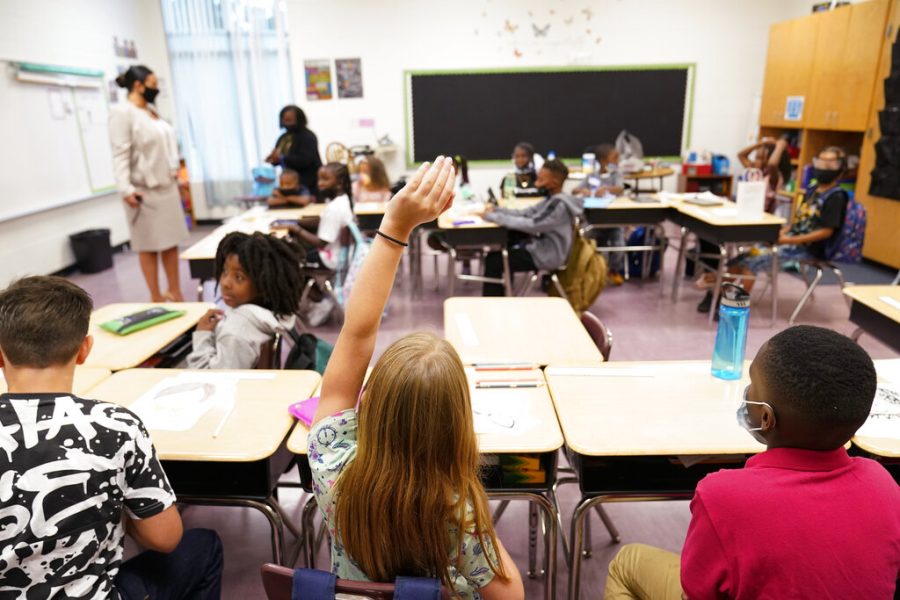Discover the Advantages of Campaigning For: Save Temecula Schools
Discover the Advantages of Campaigning For: Save Temecula Schools
Blog Article
Recognizing the Value of Institutions in Kid Advancement and Community Growth
Institutions' interaction with regional neighborhoods via service-learning efforts enhances the bond in between households and academic establishments. This symbiotic connection underscores the value of institutions in supporting active citizenship and lifelong discovering behaviors.
Academic Achievement
Academic achievement works as a cornerstone of kid advancement, giving the foundation whereupon future knowing and success are constructed. Colleges play a crucial function in cultivating this academic development, providing organized environments where kids can acquire necessary expertise and cognitive skills. Standard educational program ensure that pupils gain efficiency in core topics such as mathematics, scientific research, and language arts, which are important for both greater education and learning and professional chances.
Along with passing on basic scholastic abilities, colleges also grow important reasoning, analytic capacities, and intellectual interest. These cognitive expertises are vital for browsing complicated real-world scenarios and adjusting to the ever-evolving demands of the modern-day workplace. Teachers, as facilitators of understanding, utilize varied pedagogical techniques to satisfy varied understanding styles, thereby taking full advantage of specific pupil possibility.
Moreover, academic success is carefully connected to self-confidence and motivation. Kids that experience scholastic accomplishments are more probable to establish a favorable self-concept and a lifelong enthusiasm for understanding. Colleges likewise provide different sources, such as libraries and innovation, which additionally improve the academic experience and prepare students for a technologically advanced society.
Social Ability Advancement
Beyond scholastic achievement, the function of schools in social ability growth is important. Schools function as a key place for children to find out and practice important social abilities such as teamwork, interaction, and problem resolution. In the organized environment of a class, students connect with peers, teachers, and other institution staff, providing numerous opportunities to develop these essential abilities.
Reliable social skill growth in colleges is assisted in through group activities, joint projects, and extracurricular programs. These interactions assist trainees recognize social norms, develop compassion, and foster a sense of area. Team jobs teach trainees exactly how to function with each other towards a common goal, pay attention to various viewpoints, and browse disagreements constructively.

The growing of social skills during college years lays a foundation for future individual and specialist partnerships. Save Temecula Schools. As trainees mature, the capacity to successfully interact and team up comes to be significantly crucial, underscoring the college's important role in alternative kid advancement
Exposure to Variety
Direct exposure to variety in colleges is basic to fostering a comprehensive way of thinking and broadening students' perspectives. Schools act as a microcosm of the wider society, and coming across diverse societies, languages, and socioeconomic histories within this environment furnishes pupils with vital abilities for browsing an increasingly globalized globe. This direct exposure encourages compassion, minimizes bias, and advertises common regard amongst my website peers.
Research indicates that pupils that interact with peers from different backgrounds exhibit better problem-solving skills and creative thinking. This understanding of variety prepares pupils for future work environments that worth modern competence - Save Temecula Schools.

Area Involvement
The benefits of diverse class expand past the college wall surfaces, promoting a strong feeling of neighborhood engagement among pupils. By connecting with peers from different social, socioeconomic, and ethnic backgrounds, students gain a more comprehensive point of view and a recognition for Click This Link diversity. This exposure urges them to become energetic residents who agree to contribute positively to their areas.
Institutions that stress area involvement typically incorporate service-learning projects, which enable pupils to attend to real-world problems while applying scholastic skills. These projects not just improve trainees' understanding of their coursework but also infuse a feeling of responsibility and compassion. Furthermore, collaborations in between institutions and local organizations supply pupils with chances to take part in community occasions, better solidifying their role as aggressive area participants.
Furthermore, parental and neighborhood participation in colleges enhances the bond between universities and the neighborhoods they serve. When colleges open their doors to community events, workshops, and volunteer chances, they create a collaborative atmosphere that profits all stakeholders. This mutual support group guarantees that trainees receive all natural development, preparing them to end up being well-rounded people that contribute and value to their neighborhoods. Via these initiatives, institutions play a crucial function in nurturing area engagement and promoting social development.
Lifelong Knowing Habits
Developing long-lasting discovering routines is essential for a kid's continuous development and flexibility in an ever-changing globe. Schools play a pivotal role in instilling these behaviors by producing a setting that cultivates inquisitiveness, critical reasoning, and a love for expertise. Via extracurricular activities and diverse curricula, teachers urge pupils to check out various topics, examine info critically, and use their learning to real-world situations.

Furthermore, institutions supply an organized environment where youngsters can establish self-control and time administration abilities, both of which are essential for continual understanding. By highlighting the significance of establishing objectives, assessing progression, and adapting methods, instructional establishments prepare pupils to navigate the intricacies of adult life, ensuring they stay long-lasting students and factors to society.
Conclusion
In final thought, institutions are important in promoting youngster development and click community development by supplying settings for scholastic accomplishment, social ability growth, and exposure to diversity. Via collective projects and communications, schools enhance vital thinking, empathy, and interaction skills. Community engagement initiatives further reinforce the bond in between educational organizations and neighborhood neighborhoods. Eventually, institutions cultivate long-lasting discovering practices, outfitting people with the necessary expertise and abilities to add positively to culture.
In the organized atmosphere of a classroom, pupils interact with peers, teachers, and other institution staff, providing many possibilities to establish these critical capacities.
In significance, exposure to diversity within institutions not just enriches specific trainees but also strengthens the social material of the community as a whole.
The advantages of diverse class prolong beyond the college walls, cultivating a strong sense of community interaction amongst trainees.Colleges that emphasize area engagement often incorporate service-learning tasks, which enable pupils to address real-world problems while applying scholastic skills. Partnerships between colleges and local organizations give trainees with opportunities to get involved in neighborhood events, even more strengthening their duty as aggressive area members.
Report this page